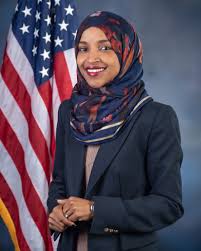Ilhan Omar: A Political Force in American Politics

Introduction
Ilhan Omar, a prominent figure in U.S. politics, has been making headlines since her election to Congress in 2018. As one of the first two Muslim women to serve in the House of Representatives, her presence signifies a transformative shift in American political representation. Omar’s advocacy for social justice, immigrant rights, and progressive policies underscores the importance of diversity in government and the influence of youth-led movements.
Rising Through the Ranks
Born in Somalia and immigrating to the United States as a refugee, Omar’s journey is a testament to resilience. She served as a Minnesota State Representative before making her leap to Congress, where she quickly became known for her unabashed approach to challenging the status quo. Her membership in the “Squad”—a group of progressive lawmakers that includes Alexandria Ocasio-Cortez—has further elevated her profile, allowing her to advocate more vigorously for issues such as healthcare reform and climate change.
Key Legislative Efforts
Omar has focused on a myriad of crucial topics during her time in office. Notably, she has championed legislation aimed at addressing systemic racism, advocating for affordable housing, and supporting reforms in immigration policy. Her consistent push for the Green New Deal aims to address climate change, while her introduction of the “No Ban Act” seeks to repeal controversial immigration bans. These initiatives have resonated with many constituents, particularly from marginalized communities.
Controversies and Challenges
Despite her popularity, Omar has also faced substantial criticism and scrutiny, particularly concerning her outspoken remarks on Israel and her critiques of U.S. foreign policy. Such controversies often ignite heated debates on social media and among political commentators, drawing both support and backlash from various sides. Omar’s resilience in the face of such challenges continues to highlight the need for ongoing discussions around race, religion, and the intersectionality of American politics.
Conclusion
Ilhan Omar’s role in contemporary politics is not just a matter of representation but also about the unyielding push for progressive change. As she continues her work, she embodies a new wave of political engagement that speaks to younger generations who desire greater inclusivity and justice. Looking ahead, Omar’s influence is likely to grow, shaping discussions around crucial societal issues and challenging the traditional dynamics of politics in the United States.









